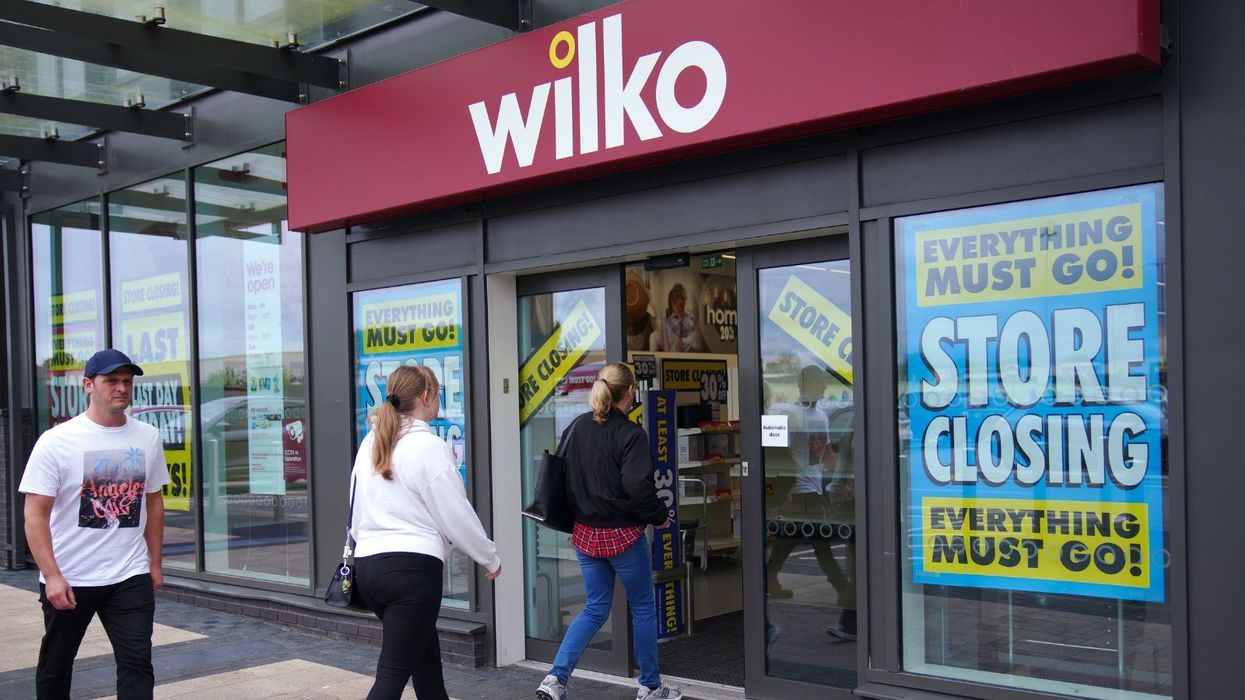Santander urges Wilko sale shoppers to watch out as hundreds targeted by fraudsters – have you been scammed?

Wilko shoppers hoping to pick up a bargain in the closing down sale are being urged to watch out for fraudsters
|PA

Wilko shoppers looking to grab a bargain in the retailer’s closing down sale are being urged to be vigilant of scammers
Don't Miss
Most Read
Latest
Santander is urging bargain hunters to watch out for red flags which could signal they’re being targeted by scammers.
Fraudsters often take advantage when brands have recently announced store closures, and Wilko sale shoppers are currently at risk.
While Wilko is offering closing down sale offers in-store, there have been hundreds of cases of fraudsters purporting to be the chain online.
The so-called sales are typically advertised on social media or through fake websites.
WATCH NOW: Wilko shoppers react to store closures
Chris Ainsley, head of fraud risk management at Santander said: “Fraudsters see the news of large retailers closing shops as an opportunity to try and turbocharge their own closing down or clearance sale scams.
“We often see a worrying spike of this type of scam, when an announcement like this is made public.
“If you see an advert for discounts which sounds too good to be true, it probably is a scam. Even if the advert uses recognisable logos and brand names, people should be alert and ensure they are visiting genuine websites.”
Santander data shows in August alone, more than 5,000 disputes were raised involving merchants that had been set up by fraudsters.
It included those imitating companies, including major retailer Wilko, having genuine closing down sales or end-of-season clearances. Wilko collapsed into administration on August 10, and all 400 stores will have closed by early October.
Cases doubled from 869 in the week commencing August 14 to around 1,700 in the following week, as many customers realised that while they thought they’d grabbed a deal, it had actually been a scam.
Numbers remained high throughout the month, with more than 2,200 cases reported in the final week of August with a total value of nearly £85,000.
Customers are losing £37 each on average in these scams – a total of more than £300,000 since the start of August this year.
How do closing down sale scams work?
With closing down sale scams, fraudsters post an advertisement showing heavily discounted products as part of a supposed closing down or clearance sale.
Often, they are published on social media platforms and include a link to fake websites, which customers may click through to and subsequently add items to their basket.
A common tactic is the website only allows the items to be in the basket for a restricted period of time, such as five minutes, which adds pressure to the sales process and encourages customers to rush to secure the “bargains”.
Worryingly, the website can harvest significant data as part of the checkout process, including address and email address, which could be used in future scam attempts.
Often, an expensive “VIP” or “Premium” shipping service is automatically added to the basket, with no option to remove it. As time starts to run out to complete the order, consumers will often rush and agree to the extra cost, and make the payment.
LATEST DEVELOPMENTS:

Santander shared this advert with Wilko branding, warning it is not from the retailer and is in fact a scam
|SANTANDER UK
Despite the payment screen looking legitimate, including the branding of a well-known provider, it’s not a secure or legitimate website and the payment isn’t processed by the official provider. Sadly, the money instead goes to the criminal and the ordered goods will never arrive.
Santander has shared a number of tips for reducing the risk of falling victim to closing down or clearance sale scams.
These are:
- “If a price looks too good to be true, it probably is
- “Always check the website you are purchasing from – check it’s the legitimate web address, rather than a copy of a well-known brand’s address
- “When buying online, check the payment pages are secure by looking for the padlock symbol in the address bar. The website should start with ‘https’
- “It never hurts to stop and pause before sending your money. A quick chat with a friend or relative can sometimes be a great way to sense check what you’re doing.”










